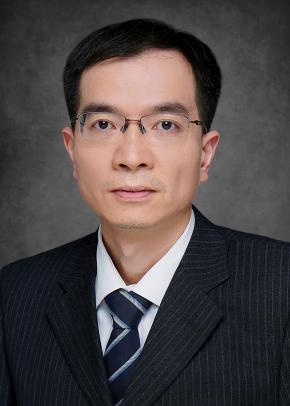
搜索网站、位置和人员

新闻与活动 活动信息
化学专题学术讲座Chemistry Colloquium ▏ Prof. Zhenyu Li: Quantum Computation and Artificial Intelligence for Electronic Structure
时间
2024年12月5日(周四)
下午16:00-17:30
地点
西湖大学云谷校区E10-201教室
主持
西湖大学理学院/人工光合作用与太阳能燃料中心PI王涛教授
受众
全体师生
分类
学术与研究
化学专题学术讲座Chemistry Colloquium ▏ Prof. Zhenyu Li: Quantum Computation and Artificial Intelligence for Electronic Structure
Time:16:00-17:30, Thursday, December 5, 2024
时间:2024年12月5日(周四)下午16:00-17:30
Host: Prof. Tao Wang, Pl of CAP for Solar Fuels and School of Science,Westlake University
主持人: 西湖大学理学院/人工光合作用与太阳能燃料中心PI王涛教授
Venue: Room E10-201, Yungu Campus, Westlake University
地址:西湖大学云谷校区E10-201教室
Lecture Language: Chinese
讲座语言:中文

李震宇教授
中国科学技术大学
Prof. Zhenyu Li
University of Science and Technology of China (USTC)
主讲人/Speaker:
Dr. Zhenyu Li is a chair professor at University of Science and Technology of China (USTC) and director of the Key Laboratory of Precision and Intelligent Chemistry. He obtained his BSc degree in physics in 1999 and his PhD degree in physical chemistry in 2004, both from USTC. From 2004 to 2007 he carried out postdoctoral research at the University of Maryland, College Park and the University of California, Irvine. After that, he joined the faculty of USTC as an associate professor and was promoted to professor in 2012 and to chair professor in 2022. Dr. Li’s research interests focus on developing and applying new methods to study atomic-scale mechanisms and properties of materials, with a focus on quantum computational chemistry in recent years. He has published more than 230 peer-reviewed papers in journals including Nature, JACS, PRL, and Angew. Chem. Int. Ed. with more than 11,000 citations (H-index: 55). He is the recipient of National Excellent Doctoral Dissertation Award, CAS Outstanding Science and Technology Achievement Prize, and NSFC Outstanding Young Scientist Project.
讲座摘要/Abstract:
Quantum computation and artificial intelligence are revolutionizing computer science. In this talk, I will focus on how to solve the electronic structure problem based on quantum computation and artificial intelligence. New quantum algorithms are developed to take quantum advantage, avoid quantum weakness, and extend quantum applicability. A software named Q2Chemistry is developed as a platform for quantum computational chemistry studies. Transformer network is used to represented many-body wavefunction, which provides a flexible way to describe electron correlation via the attention mechanism and an efficient electron configuration sampling technique in an autoregressive way. To facilitate the optimization of the network, a pretraining with configurations generated from quantum computation gives an efficient way to solve the electronic structure problem by combining quantum computation and artificial intelligence.
联系人/Contact:
理学院,朱怡,zhuyi48@westlake.edu.cn
School of Science, Yi Zhu, zhuyi48@westlake.edu.cn

















